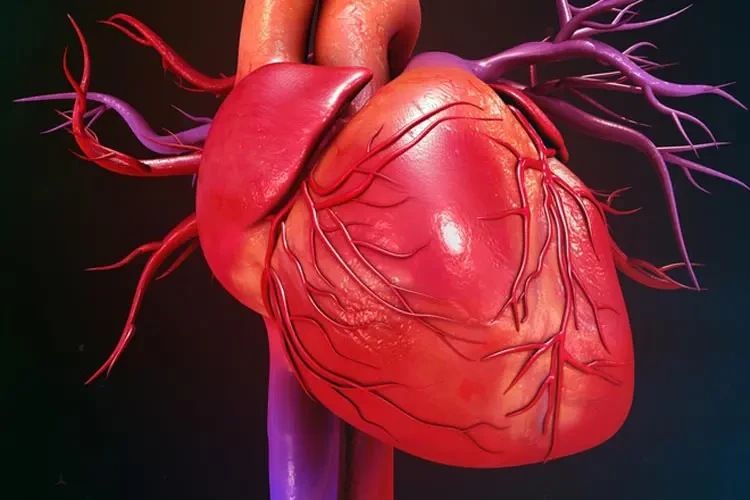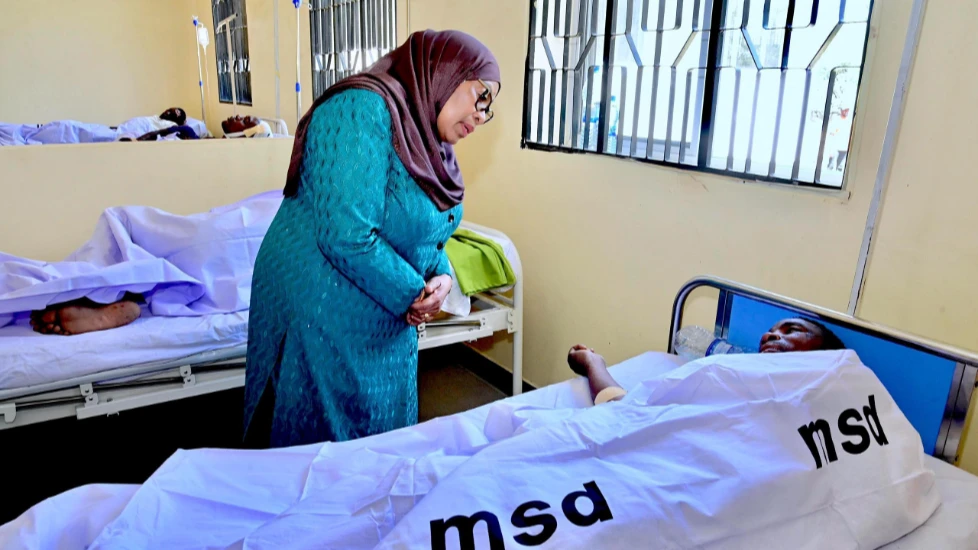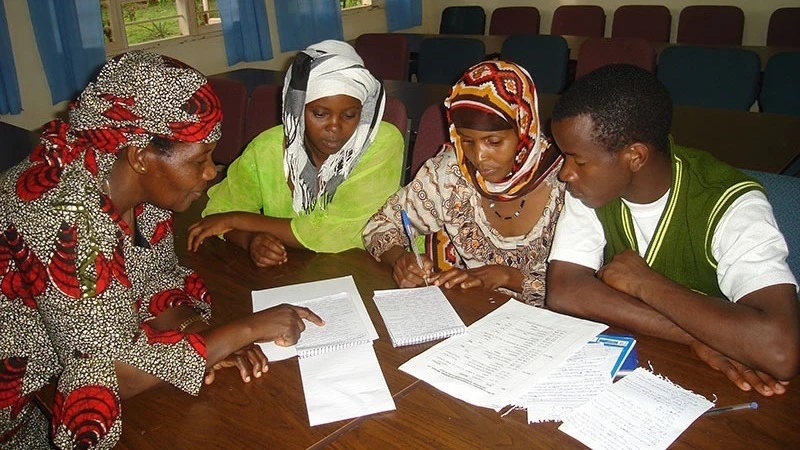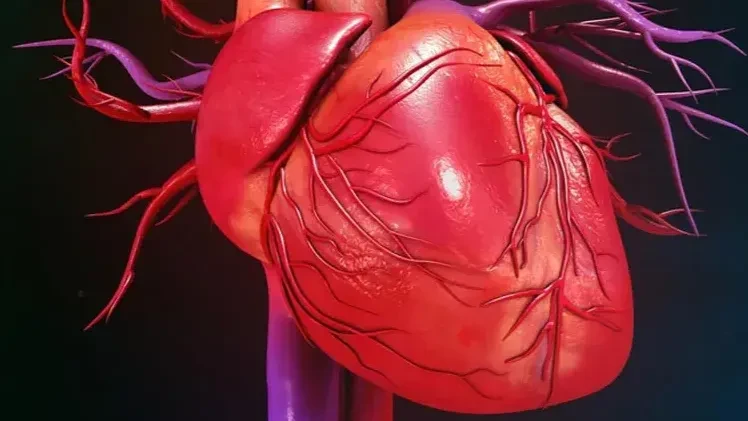How JKCI is transforming cardiac care in Tanzania

HEART disease, commonly known as a cardiac attack, has become one of the most serious and dangerous diseases, predominantly affecting older individuals in communities worldwide.
There are four main types: cardiovascular disease, cerebrovascular disease, peripheral artery disease, and aortic atherosclerosis. The general term for the situation leading to a heart attack is Coronary Heart Disease (CHD).
This occurs when the heart's blood supply is blocked or interrupted by a buildup of fatty substances like cholesterol in the coronary arteries, often by a blood clot.
This blockage prevents the heart muscle from receiving the oxygen and nutrients it needs, leading to damage or death of the affected heart tissue. Over time, arteries can become "furred up" with fatty deposits called plaques, narrowing the arteries and restricting blood flow and oxygen to the heart muscle.
Affected patients typically experience chest pain and difficulty breathing. Medical statistics indicate that men aged 45 and women aged 55 are more susceptible to heart attacks than younger individuals in their respective age groups.
Further studies by the American Journal of Medical Epidemiology reveal that some infections leading to heart disease can occur unknowingly. Research has also shown that individuals who drink five or more glasses of plain water per day have a lower risk of fatal coronary heart disease compared to those who drink less than two glasses daily.
Living with heart disease can induce fear, anxiety, depression, and stress, often stemming from concerns about managing necessary lifestyle changes.
Latest statistics from the World Health Organization (WHO) show that heart attacks and strokes are among the leading causes of death globally. Additionally, CHD is the most common type of heart disease, claiming approximately 375,476 lives annually.
JKCI: A beacon of hope
Recognizing the severity and fatal consequences of heart disease, the Tanzanian government established a crucial treatment center to curb the rising infection rate: the Jakaya Kikwete Cardiac Institute (JKCI).
This institute is renowned across the East African region and beyond. As a public utility, JKCI officially commenced operations in September 2015, welcoming people from all walks of life to seek solutions for their heart ailments.
Located within Muhimbili National Hospital in Dar es Salaam, JKCI caters to both pediatric and adult populations, with patients referred from across the country. Services include diagnostics and imaging, interventional cardiology procedures, and cardiothoracic surgery.
Since its establishment in 2015, JKCI has treated over 15,461 cardiac inpatients and attended to 323,590 outpatients. The institute has also performed 4,207 interventions and conducted 2,141 open-heart and vascular surgeries.
The government plans to construct a larger extension of the hospital at the Muhimbili National Hospital's Mlongazila campus, on the outskirts of the city center. This expansion will significantly increase the institute's capacity.
Prevention and early detection
Dr. Samwel George, a cardiologist at JKCI, has issued a public warning and caution, providing essential methods for citizens to protect themselves from this dangerous disease. He emphasized that the rising prevalence of heart disease is linked to unhealthy lifestyles and dietary habits. Therefore, citizens should take early precautions upon experiencing any symptoms.
According to Dr. George, there are nine common signs of cardiac attacks in adults, including frequent headaches. He shared this information at the institute's pavilion during the recent 49th International Sabasaba Exhibition in Dar es Salaam.
Symptoms of common heart attack
Discomfort in the center or left side of the chest lasting more than a few minutes, or that goes away and comes back. This discomfort can feel like uncomfortable pressure, squeezing, or fullness.
Feeling weak, light-headed, or faint, shortness of breath, increased heartbeat, extreme fatigue, swollen feet, wollen abdomen as well as left-sided chest pain, often accompanied by a dry cough and dizziness.
Proactive steps for heart health
Dr. George highlighted simple yet effective ways to prevent heart attacks, even during sleep:
Maintain a Balanced Diet: Incorporate heart-healthy foods, including fruits, vegetables, whole grains, and lean proteins. Reduce fat intake, and minimize salt and excessive sugar consumption (e.g., sugary juices and dried fruits).
Regular Exercise: Adults need to reduce stress through exercise and relaxation. Engage in various activities, including sports, for at least 30 minutes every day, ideally five times a week, to strengthen body muscles. This includes climbing stairs instead of using elevators or walking up inclines to strengthen the heart and blood vessels.
Avoid Harmful Substances: Prevent heart disease by avoiding excessive alcohol consumption, smoking, and tobacco use.
To empower the public, services and training are crucial for educating citizens on effective ways to protect themselves from heart diseases. Dr. George also urged people to reduce their consumption of high-carbohydrate foods, which can easily lead to weight gain and increase the risk of heart problems.
Ongoing improvements in Tanzania's health sector have significantly advanced treatment options, including for heart disease. Statistics show a remarkable increase in patient services at JKCI: from July 2023 to March 2024, the institute served 237,132 patients, a substantial rise compared to the 93,017 patients served during the same period in 2022/2023.
Dr. Peter Kisenge, JKCI’s Executive Director, stated that the demand for medical services is immense. In response, the institute's management continues to improve cardiac care by opening various branches to decongest the headquarters. Currently, clinics have been established in Oysterbay and Kawe in Dar es Salaam, as well as at Dar Group Hospital.
JKCI continues to gain domestic and international recognition, leading African countries to collaborate for heart disease screening and surgical services. "In 2024, JKCI was able to conduct a heart disease screening camp in Comoros where more than 2,000 victims were screened for these diseases and performed heart surgery on children with heart diseases in Zambia," Dr. Kisenge revealed. He also extended gratitude to the government for enabling the institute to conduct historical medical research in Africa.
"The Sixth Phase Government has provided us with many facilities that have enabled many patients who did not know where to go for treatment to receive treatment because the type of equipment we have has enabled our specialists to perform 90 percent of surgeries themselves," Dr. Kisenge affirmed. He concluded that JKCI will continue to be a medical tourism center, attracting patients from 20 African countries for treatment.
Top Headlines
© 2025 IPPMEDIA.COM. ALL RIGHTS RESERVED

























